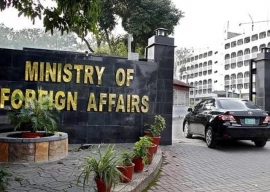
The federal government is facing challenges in improving the quality of salt iodisation and its monitoring mechanisms.
Speaking at a seminar on Universal Salt Iodisation (USI) Programme in Pakistan on Tuesday, the health ministry’s Director Nutrition Dr Baseer Khan Achakzai said the current key challenges are improving the quality of salt iodisation and monitoring mechanisms so concentrated efforts are required from all stakeholders and key USI Partners.
The seminar was organised by the Ministry of National Health Services, Regulation and Coordination in collaboration with Global Alliance for Improved Nutrition (GAIN).
According to estimates, nearly 50 million people in Pakistan suffer from iodine deficiency while 70 per cent of the total population in the country is at risk of Iodine Deficiency Disorders.
A press release stated that studies revealed that more than five million children born every year in the country are unprotected against brain damage while 36 per cent of mothers and 23 per cent of pre-school children are suffering from iodine deficiency.
Pakistan is rated sixth among countries where iodine deficiency is a serious problem
Speaking on the occasion, GAIN Senior Project Manager Chaudhry Faiz Rasool presented a summary of the organisation’s activities in the country’s Salt Iodisation Programme. He explained that GAIN has signed MoU’s with Pakistan Standards and Quality Control Authority, Punjab Food Authority and Unicef to improve quality control and monitoring components of the Pakistan USI Programme.
Published in The Express Tribune, September 18th, 2014.










































COMMENTS
Comments are moderated and generally will be posted if they are on-topic and not abusive.
For more information, please see our Comments FAQ